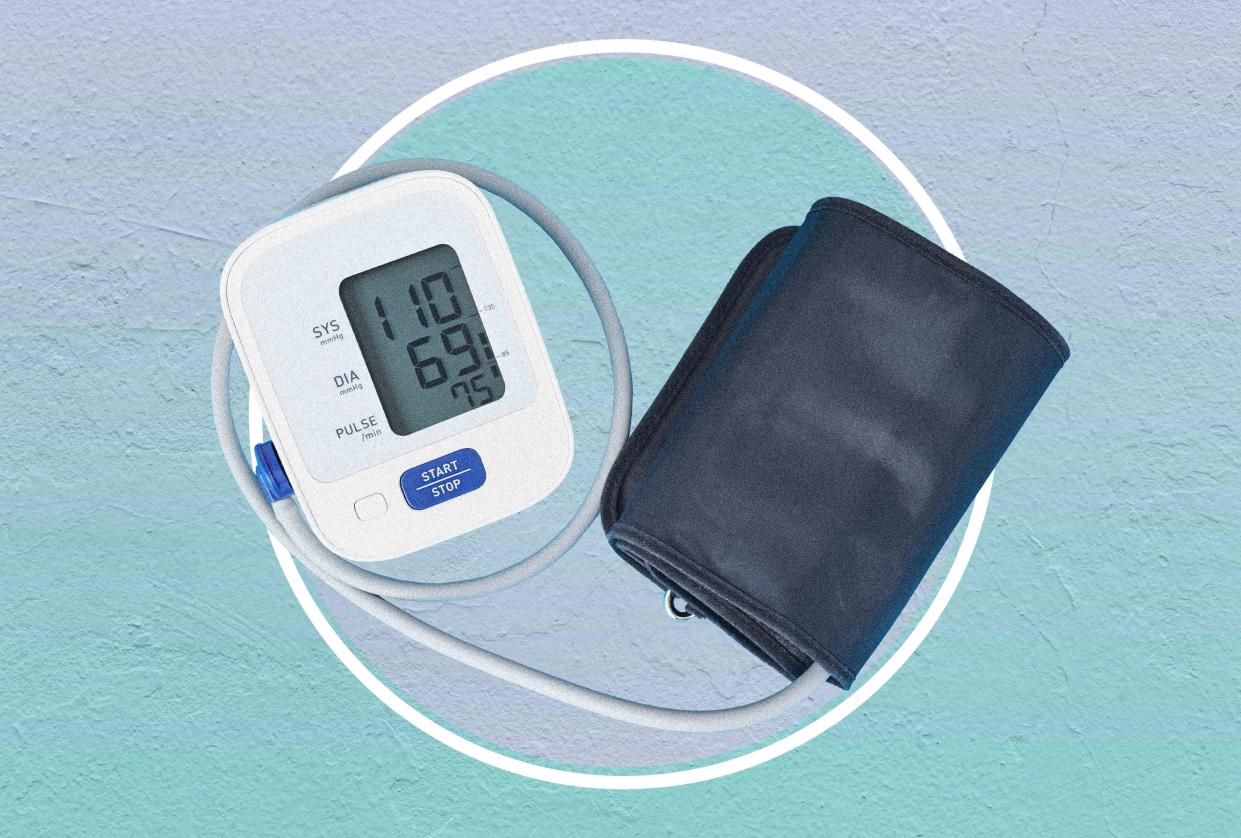If You're Having Trouble Sleeping, It May Be Time to Check Your Blood Pressure

Photo Illustration by Amelia Manley for Verywell Health; Getty Images
Fact checked by Nick Blackmer
Key Takeaways
A new study shows that insufficient sleep is linked to hypertension in women.
Three months of consistent sleep issues is considered insomnia.
Improving sleep habit may help ward off potential health issues like obesity, hypertension, and cardiovascular disease.
It’s tough to carve out time to get enough sleep, but prioritizing rest seems more critical than ever for women. According to a new study published in the journal Hypertension, chronically skimping on sleep can have real health implications, including high blood pressure (hypertension).
Specifically, over the course of 16 years, women who slept less than seven to eight hours per night and those who struggled to fall and stay asleep were more likely to develop high blood pressure.
Researchers at the Channing Division of Network Medicine of Brigham and Women’s Hospital tracked 66,122 women between the ages of 25 and 42, none of whom had hypertension pressure at the start of the study. By the end, 25,987 of the participants had developed hypertension.
Though the findings are troubling, lead study author Shahab Haghayegh, PhD, emphasized that the study doesn’t draw a direct cause-and-effect line between lack of sleep and hypertension.
“While this study examined the association between sleep and hypertension, it’s essential to note that our findings do not imply causality,” he told Verywell. “High blood pressure might be an outcome of poor sleep quality or duration, or both hypertension and poor sleep might be outcomes of other underlying conditions.”
Instead, Haghayegh says that the study indicates that sleep issues should be an impetus to test for other health concerns.
“Our findings clearly demonstrate a substantial association between these two conditions,” he said. “Clinicians should be vigilant in assessing the blood pressure of patients who present with sleep-related issues.”
Takeaway
The gendered terms in this article are the same terms used in the reference source.
How Can You Tell When Your Sleep Trouble Is a Health Problem?
Haghayegh said that a few nights of fitful sleep isn’t a major issue. But at least three months of problems—including difficulty falling asleep, staying asleep, or waking early—is classified as insomnia.
Still, sleep habits vary, and there’s no one-size-fits-all metric for when they might become a problem, Allison E. Gaffey, PhD, a clinical psychologist and instructor of cardiovascular medicine at Yale School of Medicine, told Verywell.
“If symptoms interfere with your ability to function or last longer than four weeks, then consider talking to your primary care provider to discuss your symptoms,” said Gaffey, who studies how lifestyle factors impact women’s cardiovascular health. “If there are safety issues related to feeling overly tired, see a healthcare provider as soon as possible.”
What’s the Link Between Sleep and Blood Pressure?
It’s hard to determine whether poor sleep is the root cause of these cases of hypertension or just another byproduct. The study showed that participants also had other risk factors of hypertension, such as higher body mass index (BMI), lower physical activity, poor diets, and were postmenopausal.
Hormonal changes during menopause have been shown to cause significant sleep disturbances, with insufficient sleep increasing from pre-menopause to post-menopause by as much as 18%.
However, Gaffey said that hypertension is just one potential outcome of insomnia. Inflammation, diabetes, mental health issues such as depression, anxiety, PTSD, major adverse cardiovascular events (MACE), and heart failure have been linked to both short and long sleep duration. Haghayegh added that poor sleep can also impact cognitive decline, some cancers, and stroke.
How to Correct Sleep Issues
Short of medication, Gaffey says that cultivating better sleep habits can help encourage more effortless and more lasting sleep.
“Many problems with sleep can be addressed by improving behavior around sleep or the sleep environment like keeping a quiet, dark sleeping space, avoiding screens, or eating or exercising too close to bedtime,” she said.
If sleep issues persist, it may be time to see your physician to discuss more extensive measures or perhaps a sleep study to investigate the root of the problem. Depending on gender, stage of life, or other health conditions, there may be alternatives to pharmaceuticals.
What This Means For You
If you struggle with sleep, it may be time to see your doctor, since getting fewer than seven hours consistently may be linked to health issues like high blood pressure. Roughly half of Americans have high blood pressure but may not know it. A simple cuff test could allow you to start treating the issue before it leads to more severe issues such as heart attack or stroke.
Read the original article on Verywell Health.
